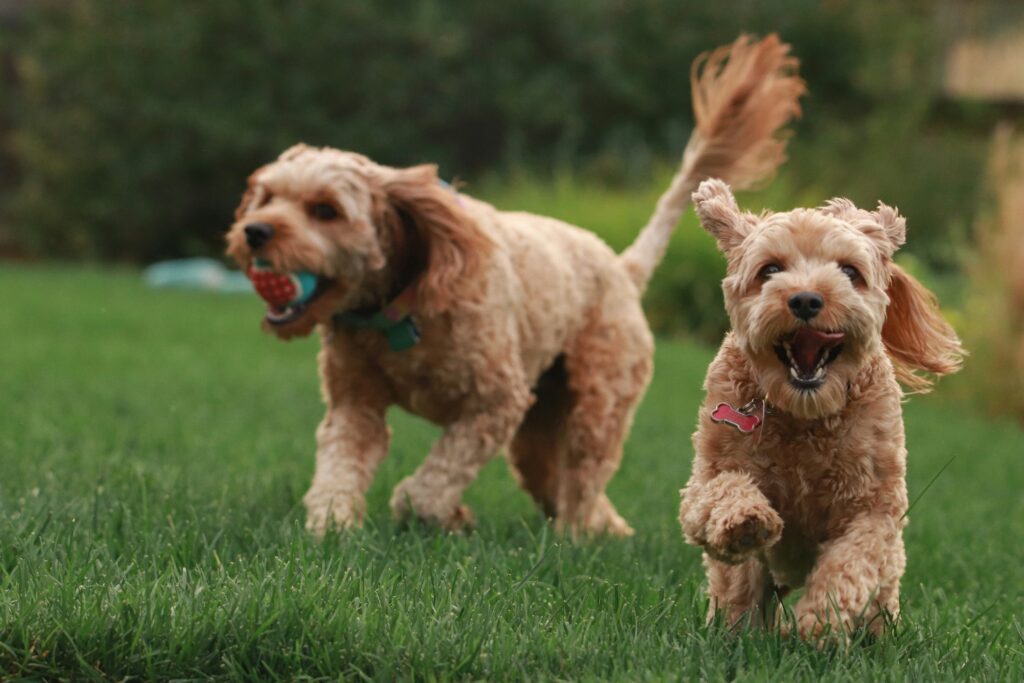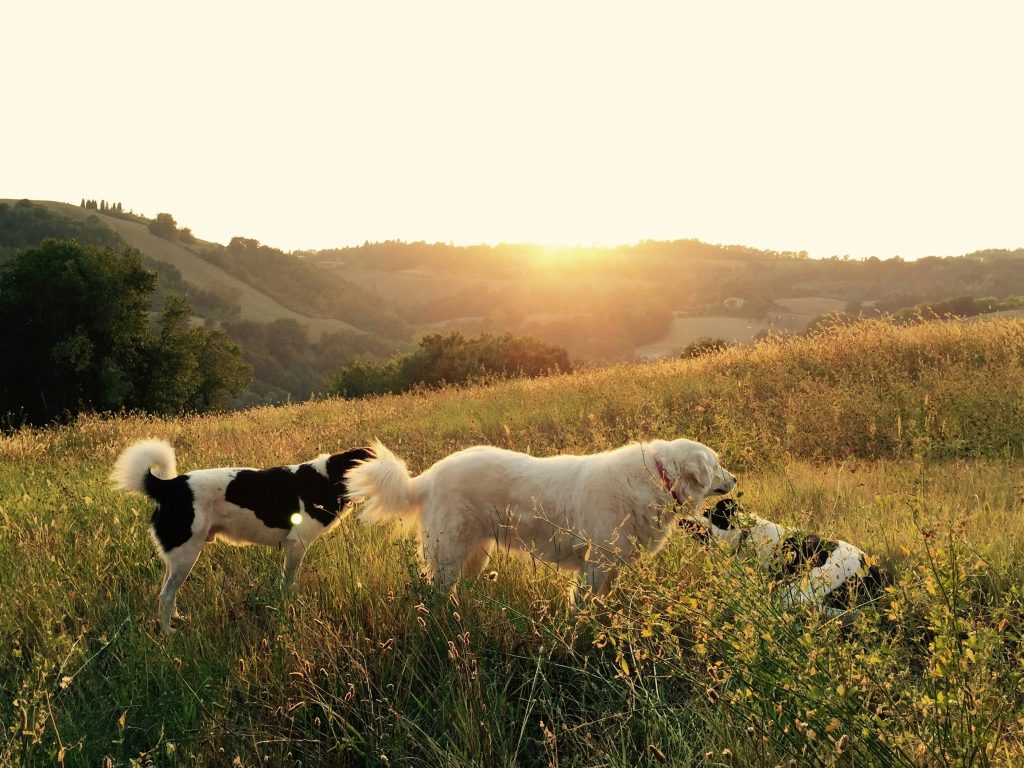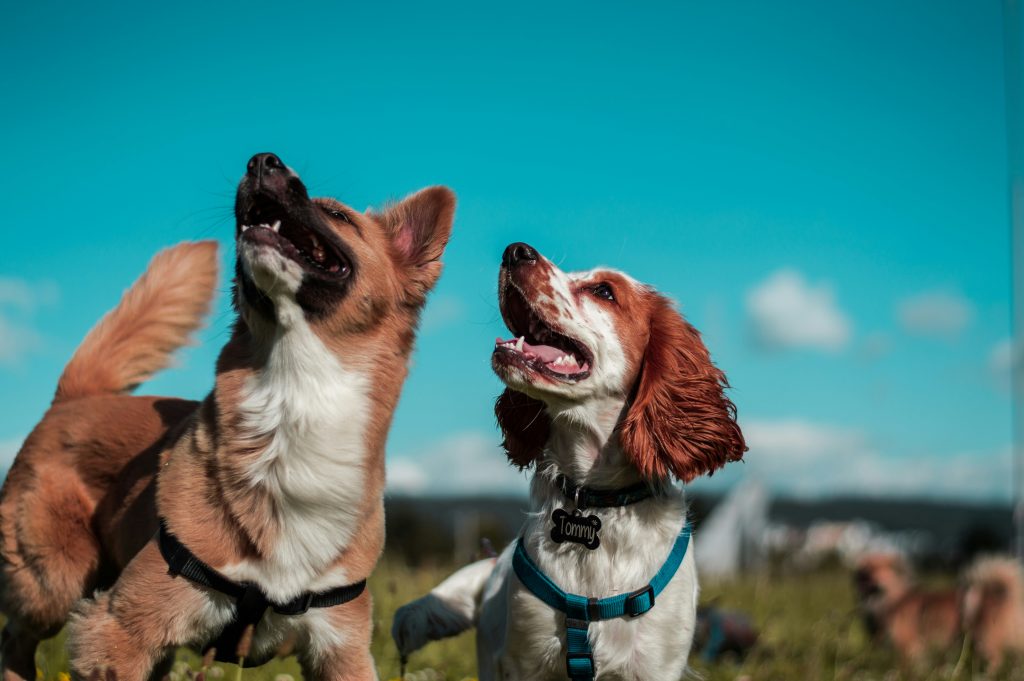The Power of Play: Keep Your Dog Thriving
When you picture a happy, healthy dog, chances are you imagine a pup running joyfully through a yard, playing tug-of-war, or chasing a favorite ball. Play isn’t just fun — it’s essential to your dog’s overall wellness.
Incorporating regular playtime into your dog’s routine supports their physical health, mental sharpness, emotional balance, and social skills. In this blog, we’ll explore why play matters so much, how it benefits your dog, and practical ways to make playtime part of daily life.
Why Play Matters for Dogs
Play is one of the most natural and important behaviors in dogs. It satisfies instinctual needs, relieves boredom, and helps dogs learn appropriate social skills.
Without enough play, dogs may develop behavioral issues like:
-
Destructive chewing
-
Excessive barking or whining
-
Hyperactivity or restlessness
-
Anxiety or depression
Play is not a luxury — it’s a wellness tool that every dog needs.
Physical Benefits of Play
Play keeps your dog’s body strong and healthy. Activities like fetch, tug, or running help:
-
Build muscle tone and joint flexibility
-
Maintain a healthy weight
-
Improve cardiovascular health
-
Enhance coordination and balance
Regular exercise through play can also help prevent obesity, which reduces the risk of diabetes, arthritis, and heart disease.
Mental and Emotional Benefits
Play isn’t just a physical workout — it’s a mental one, too. It helps:
-
Provide mental stimulation and problem-solving opportunities
-
Reduce boredom and stress
-
Boost confidence, especially in shy or anxious dogs
-
Strengthen the bond between you and your dog
Puzzle toys, training games, and scent work keep your dog’s brain active and satisfied.
Social Benefits of Play
Dogs are social creatures. Play helps them:
-
Practice communication and body language
-
Learn bite inhibition and self-control
-
Build positive relationships with people and other dogs
Playdates with friendly dogs or interactive games with family members improve your dog’s social skills and overall happiness.
Types of Play for Wellness
There’s no one-size-fits-all approach — different dogs enjoy different types of play. Here are some ideas to match to your dog’s personality and energy level:
-
Fetch and Retrieval Games:
For active dogs, fetch is a classic favorite. Use balls, frisbees, or soft toys. Bonus: fetch in water provides low-impact exercise. -
Tug-of-War:
Great for burning energy and building strength. Just remember to teach a solid “drop it” command. -
Puzzle Toys and Food Games:
Engage your dog’s mind by hiding treats in puzzle feeders, snuffle mats, or cardboard boxes. -
Scent Work and Hide-and-Seek:
Hide treats or toys around the house or yard for your dog to find using their nose. -
Training as Play:
Turn obedience practice into a game. Use positive reinforcement to teach tricks, agility moves, or impulse control. -
Social Play:
Supervised playdates with well-matched dog friends can offer both exercise and social enrichment.
Making Playtime Part of Your Routine
To get the most wellness benefits, aim for daily play sessions tailored to your dog’s needs.
-
High-energy dogs (Border Collies, Labs): Multiple active sessions per day
-
Seniors or low-energy breeds: Gentle, shorter games like sniffing or food puzzles
-
Puppies: Frequent short bursts of play to match their developing bodies and attention spans
Even 10–15 minutes of dedicated play can make a big difference.
Safety Tips for Play
-
Choose age- and size-appropriate toys
-
Supervise play with new toys or unfamiliar dogs
-
Avoid rough games that encourage nipping or jumping
-
Provide breaks and water, especially in hot weather
-
Rotate toys to keep things fresh and exciting
Strengthening the Human-Dog Bond
Play is a powerful way to deepen your relationship with your dog. It builds trust, strengthens communication, and shows your dog that you’re a source of fun and comfort.
When you invest in play, you’re not just entertaining your dog — you’re nurturing a lifelong bond that benefits both of you.
Final Thoughts
Play is far more than a way to pass the time. It’s a cornerstone of your dog’s physical, mental, and emotional well-being.
By prioritizing daily playtime, you help your dog stay fit, sharp, and socially balanced — and you get to share in the joy and laughter they bring to every game. So grab that ball, tug toy, or puzzle feeder, and watch your dog thrive!



